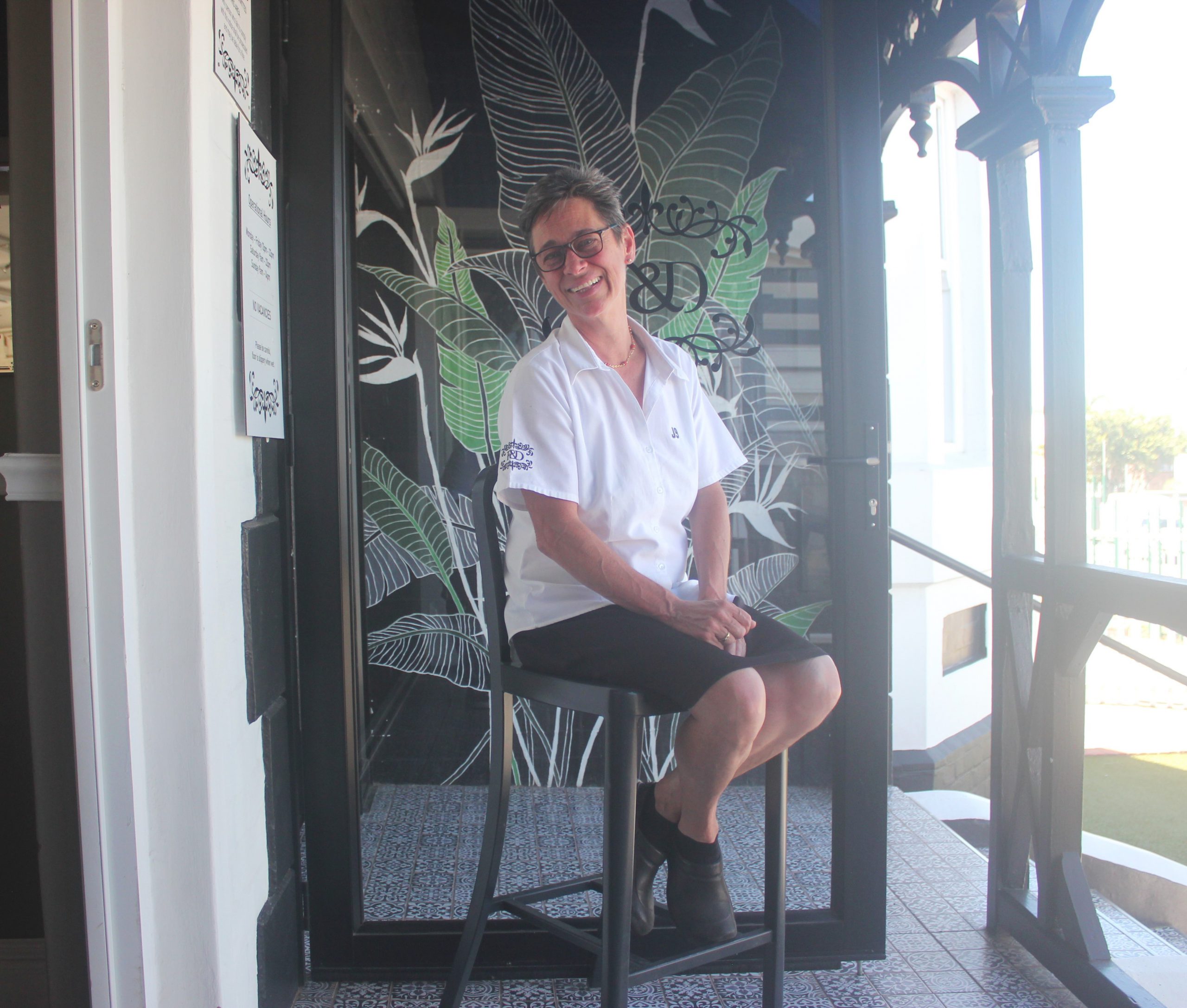By Phila-Nathi Mapisa, Ayabonga Kosi and Lincoln Morton
In the heart of Makhanda, a small town grappling with the economic repercussions of the COVID-19 pandemic, Fork and Dagger emerged as a beacon of hope for job seekers and diners alike.
Part owner and manager Janine Harris recalls those early stages, saying, “Most restaurants were closing, and we were employing an opening, and we were working on menus and putting out ads and received thousands of applicants.”

However, the restaurant faced unexpected hurdles as it aimed to redefine its identity and combat the prevailing perception of being a luxury establishment.
Opening its doors at the peak of COVID-19 struggles, Fork and Dagger bravely confronted the challenges of diminished spending power in the community. As the pandemic took its toll on orders and the overall consumption of food and alcohol, the restaurant faced the daunting task of convincing locals that it offered an affordable and varied dining experience. Janine stated: “It was a roller coaster when we opened, and then we also had to combat the restrictions with orders,” she said, harkening back to the time.
Unlike the perception held by many, Fork and Dagger tried to position itself as an inclusive space. Janine says: “We tried to break the perception and stigma of being a luxury restaurant.”

By doing this, they managed to keep prices lower than their counterparts, offering a diverse menu that catered to various tastes. Yet, this message struggled to permeate the local community’s awareness, hindering the restaurant’s efforts to establish itself as an accessible option. She said: “We did well, and Grahamstown supported us. After that, we just saw our numbers deteriorate.” Looking back at the time, she also says, “In hindsight, we would have done that differently”.
The challenges faced by Fork and Dagger are not isolated. The food service industry in Makhanda has witnessed a significant turnover in staff, a phenomenon not uncommon in the broader sector. A former employee with decades of experience at various levels within the town’s food service industry shed light on the dynamics at play.

With years of experience in this town, Allen Thomas noted that Makhanda is geared more towards quantity-based food. Having worked across a spectrum of establishments from restaurants to fast-food joints, he says: “The food availability and speed often precede the quality of service in this town.” He added, “Makhanda is a working-class town with a substantial student community, which shapes the food landscape.”
The same sentiment was shared by Janine as she added that the biggest challenge in Makhanda is the spending power.
In the context of Grahamstown’s demographics, consumer-friendly prices outweigh the appeal of luxurious dining experiences. The economic reality of the town centred around hardworking locals and a sizable student population, demands affordability. Fork & Dagger’s struggle to convey its commitment to reasonably priced meals and a diverse menu highlights the broader challenge faced by establishments attempting to balance quality with economic constraints.
The unfortunate end of Fork & Dagger is a reoccurring phenomenon in the restaurant industry in Makhanda; with the closures of establishments such as Pandas Asia Kitchen, Café Capellini, Rustic Route and many other family-owned businesses, a pattern of economic struggles outweighing the resilience and innovation of local entrepreneurs is noticeable. This pattern appears to reflect a broader issue within Makhanda’s economic framework, where limited financial resources, constant power outages, and fluctuating consumer bases, amongst other difficulties, create a challenging environment for small businesses.
In a town where personalized experiences are valued, these local businesses contribute to the unique charm found only in a close community.


